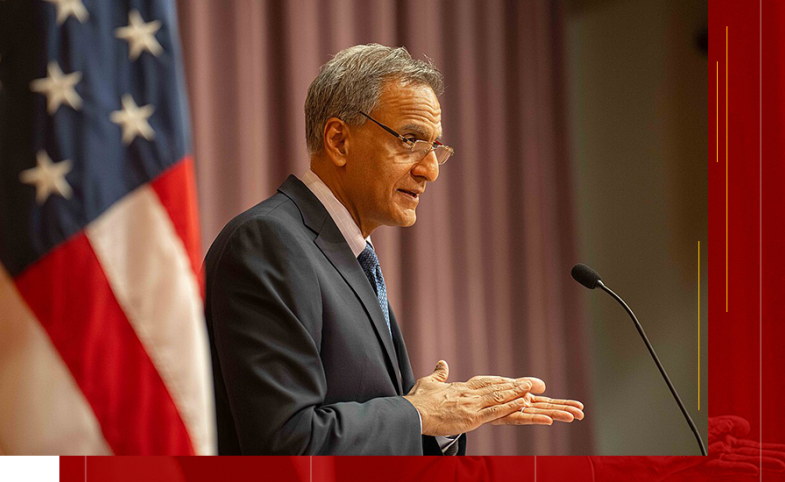“Public Diplomacy in the News” is a CPD Blog series by Andrew Dubbins that spotlights noteworthy stories on public diplomacy topics such as cultural diplomacy, nation branding, exchange programs, international...
KEEP READINGThe CPD Blog is intended to stimulate dialog among scholars and practitioners from around the world in the public diplomacy sphere. The opinions represented here are the authors' own and do not necessarily reflect CPD's views. For blogger guidelines, click here.

Public Diplomacy in the News: The Foreign Service Turns 100, Elon Musk’s Diplomatic Alliances
“Public Diplomacy in the News” is a CPD Blog series by Andrew Dubbins that spotlights noteworthy stories on public diplomacy topics such as cultural diplomacy, nation branding, exchange programs, international events and conferences, digital diplomacy, and strategic global communications.
The Foreign Service celebrates its centennial. Celebrating the centennial of the Foreign Service and AFSA, Deputy Secretary of State for Management and Resources, Richard R. Verma (pictured above), delivered remarks on Foreign Affairs Day emphasizing the evolution and future of U.S. diplomacy. Verma reflected on the transformative changes over the past century, particularly highlighting the Rogers Act that established a career diplomatic corps based on merit, initiated 100 years ago. He praised the contributions of nearly 80,000 current diplomatic staff and mentioned recent confirmations of foreign service officers by the U.S. Senate. Verma drew inspiration from Colin Powell's inclusive vision and ongoing reforms to modernize the State Department. He stressed the critical role of U.S. diplomacy in managing global challenges and the importance of maintaining a competitive, diverse, and skilled diplomatic workforce to uphold American leadership on the international stage.
Elon Musk’s corporate and political diplomacy. Elon Musk has been strategically fostering relationships with world leaders such as Argentina's Javier Milei and India's Narendra Modi, to advance both his political interests and business ventures, particularly Tesla and SpaceX. By leveraging his social media platform X (formerly Twitter), Musk has publicly supported these leaders, enhancing their international stature and aligning with their policies against socialism and "woke" culture. In return, Musk has secured significant business advantages, including reduced tariffs for Tesla in India, expanded markets for SpaceX's Starlink in Brazil, and favorable conditions for lithium mining in Argentina, essential for Tesla's battery production. This mutually beneficial arrangement underscores Musk's unique approach to combining corporate and political diplomacy to bolster his empire.
Ryan Mac, Jack Nicas and Alex Travelli / The New York Times
Diplomacy and trade, four thousand years ago. A new book, Beyond Babylon: Art, Trade, and Diplomacy in the Second Millennium B.C., explores the cultural exchanges and interactions among civilizations in western Asia, Egypt, and the Aegean during the Middle and Late Bronze Ages. The formation of powerful kingdoms and the demand for precious metals catalyzed the establishment of robust trade networks and merchant colonies, leading to a flourishing of internationalism. This era saw the exchange of goods through trade, tribute, and diplomatic gifts, which facilitated the sharing of ideas and artistic styles. Notable artifacts, such as jewelry, sculptures, and wall paintings, highlight the interconnectedness of Mesopotamia, Syria, Anatolia, the Mediterranean, and Egypt.
Joan Aruz, Kim Benzel, and Jean Evans, eds. / The Met
African Diplomats struggle for influence in Washington. African diplomats in Washington, D.C., are struggling to gain visibility and influence due to limited resources, political will, and networking efforts, according to Politico’s Nahal Toosi. Despite the many networking events in the city, African embassies often lack the staffing and funding necessary to host events or maintain a strong presence. This lack of engagement has resulted in African issues being a low priority for U.S. policymakers, even as other regions with stronger trade and military ties receive more attention. While some African countries, like Rwanda and Kenya, have more active diplomatic missions, the overall absence of African diplomats in key circles limits their ability to advocate effectively for their nations.
Nahal Toosi / Politico Magazine
Surging Defense Diplomacy in the Pacific Islands. Defense diplomacy in the Pacific Islands is on the rise, driven by strategic competition among major powers like China, the U.S., and Australia since 2018. This uptick is marked by a surge in defense-related activities, including bilateral agreements, training exercises, humanitarian assistance, and military medical diplomacy, across countries such as Fiji, Papua New Guinea, Solomon Islands, Tonga, and Vanuatu. Defense diplomacy in the region often intersects with humanitarian efforts, particularly in response to natural disasters exacerbated by climate change.
Anna Powles and Tess Newton Cain / United States Institute of Peace
Visit CPD's Online Library
Explore CPD's vast online database featuring the latest books, articles, speeches and information on international organizations dedicated to public diplomacy.
POPULAR ARTICLES
-
January 29
-
January 20
-
January 28
-
January 2
-
January 8
Join the Conversation
Interested in contributing to the CPD Blog? We welcome your posts. Read our guidelines and find out how you can submit blogs and photo essays >.













